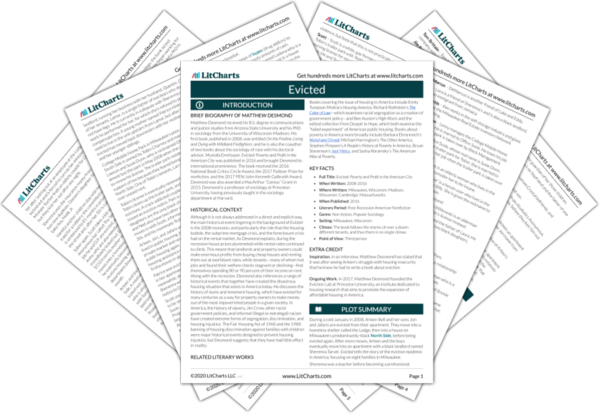LitCharts assigns a color and icon to each theme in Evicted, which you can use to track the themes throughout the work.
Poverty, Exploitation, and Profit
Inequality, Injustice, and Discrimination
Community and Interconnection
Hopelessness and Lack of Choice
